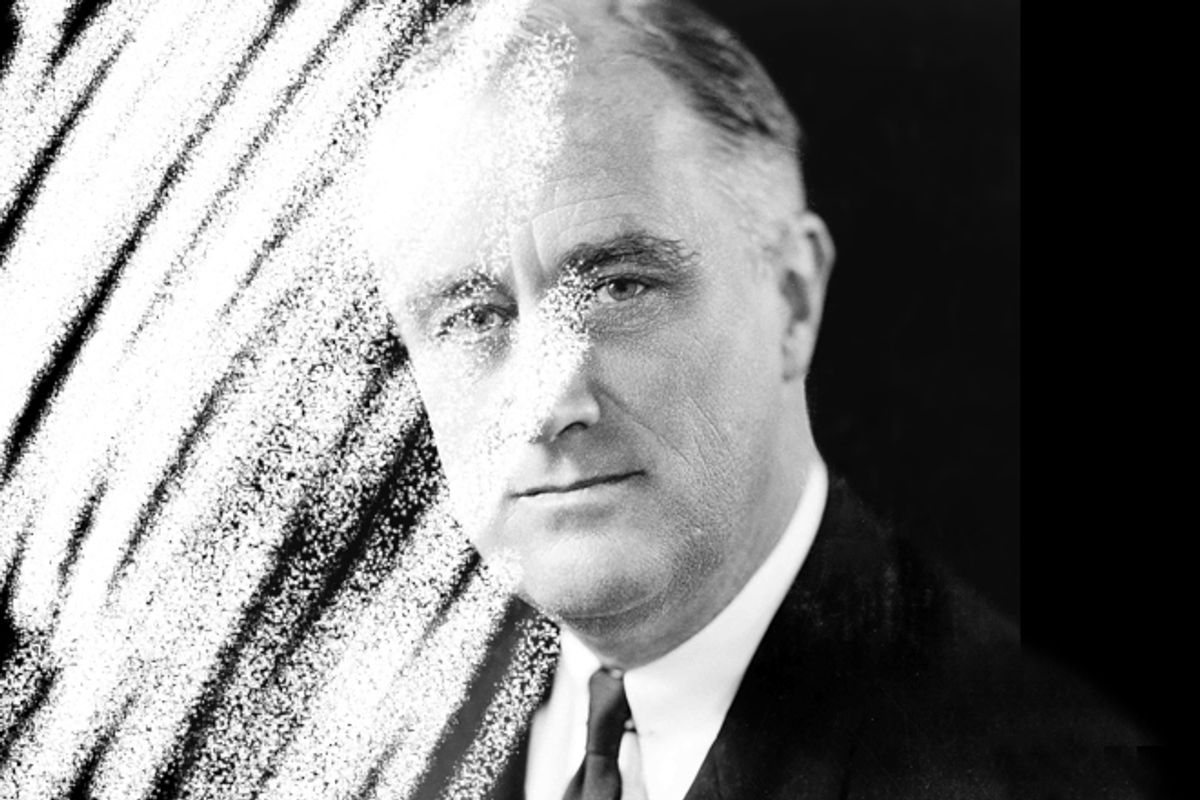No matter, what the Supreme Court does tomorrow on the Affordable Care Act, it will be a BFD, as Joe Biden said. But some scholars argue that if the Court strikes down the legislation, the collateral damage to countless other laws could be far worse than the blow to Obamacare, as the decision could undermine the constitutional foundation for the last century of progressive reforms.
“It means an enormous amount. It means we’re living under a different Constitution that we were before,” warned Simon Lazarus, a longtime liberal legal activist, now senior counsel at the Constitutional Accountability Center.
At the heart of case are two constitutional questions. First, whether Congress has the authority to require Americans to purchase health insurance under the Commerce Clause of the Constitution. And second, whether the federal government can compel states to expand their Medicaid funding.
In a white paper published by the American Constitution Society last year, Lazarus argued that if both go down, “[it] will call into question the constitutional bases for, and hence could trigger copycat challenges to, provisions of other landmark laws and programs, including safety net programs such as Medicare, Medicaid, Social Security, and CHIP (the Children’s Health Insurance Program); civil rights law guarantees against private discrimination by places of public accommodation or in the workplace; federal grant programs in education, transportation, and other large-scale cooperative federalism initiatives; and environmental protection.”
This line of argument assumes that the individual mandate is valid, as many legal scholars agree it is, and so for the Court to overturn it, they would have to invalidate other progressive reforms going back to Franklin Roosevelt's New Deal, as they are all built on an expansive interpretation of the Commerce Clause. This wouldn’t happen right away, but would come piecemeal through lawsuits against specific regulations over time. As courts applied the Supreme Court’s new precedent, they would chip away at labor, environmental and other regulations, and unforeseeable other programs.
A negative ruling on the Medicaid expansion could be even more consequential. This provision of the Affordable Care Act increases the number of people who are eligible for the federal low-income healthcare program, and is the means by which the law covers the bulk of today’s uninsured population. Under the new law, the federal government provides some of the funds for the expansion, and makes states pony up the rest by threatening to rescind all federal Medicaid funds if they don’t comply. Congress has used this same basic principle to do everything from increasing the drinking age to 21 to implementing Title IX, the gender equity in education law.
“The collateral damage is huge,” Lazarus told Salon. “The Medicaid expansion would have farther reaching consequences [than the individual mandate], especially immediately. It would be more possible to contain the implications of the mandate than the Medicaid expansion.”
Conservatives, not surprisingly, have an entirely different interpretation. Randy Barnett, the Georgetown Law professor who has helped shape the right’s legal response to Obamacare, explained in an email to Salon: “Because the mandate is unprecedented and unique, if it is invalidated, I fully expect the decision to be written in a way that leave intact every other law on the books. Collateral damage will only happen if the Court accepts the critics view of this case as a departure from existing precedent. I predict, these critics won't be saying these things tomorrow if the mandate is stricken."
Ilya Shapiro, a senior fellow in constitutional studies at the libertarian Cato Institute, agrees. He told Salon, “If the challengers win, this affects one law, and no other laws on the books. The court doesn’t need to overturn any precedents.” Shapiro, who has filed 10 amicus briefs against Obamacare, dismissed the liberal argument as “spin.”
Lazarus agreed that a narrow ruling is possible, saying, “lawyers can do anything they want, especially if they’re judges,” but he said that type of decision would not logically follow the precedent on the books. “No matter how pretty a picture you put on it, they will have blown a loophole in the Constitution and the Commerce Clause that is way bigger than needed to drive all kinds of trucks through,” he said.
Ian Millhiser, a senior constitutional policy analyst at the liberal Center for American Progress, said there’s a danger even if existing precedent is not directly overturned. “I think the main threat from the mandate being struck is that it means the Supreme Court has decided that it is allowed to create customized legal rules that exist solely to strike one provision of law and that, in the words of one Republican judge, have no basis ‘in either the text of the Constitution or Supreme Court precedent,’” he told Salon. Referring to a prevalent meme of the healthcare legal debate, he added, “And if the Supreme Court can do that, there's nothing preventing Antonin Scalia from forcing you to eat broccoli.”

Shares